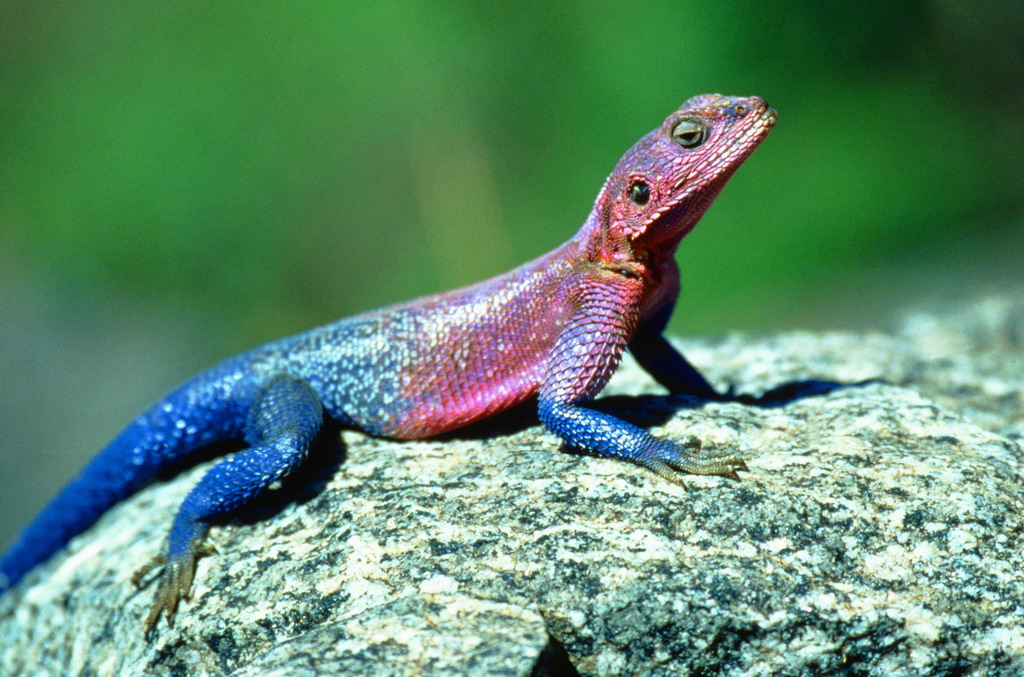【个人翻译】变暖的地球对冷血动物来说过热?
By 苏剑林 | 2009-07-08 | 41219位读者 |翻译语录:
这是一篇关于气候变暖对变温动物的影响的文章。原文很长,来自“科学美国人”网站,本文有所删减。
在人类不断报道气候变化对人类所造成的影响的时候,自然界的其他生物也在受着气候的影响。也许,自然界的其他生物才是最大的受害者。无论如何,为了我们,为了自然,为了地球,为了后代,我们都应该自觉地去减少温室效应。只要人人都节约一点点,世界就会多一片绿色、一片蓝天!
By 罗伯特 格笛儿
一项新的研究警告说,冷血陆地动物,如热带地区的蜥蜴和昆虫可能会因为世界变暖而干枯死亡。“冷血”是外行的人对变温动物的叫法,它们的体温是随着周围的环境而变化,而不是像恒温动物那样内部自行调节体温的稳定。他们能够在温度为68度至104华氏度(20至40摄氏度)的环境中生长,一般不受过热影响。随着全球变暖,研究人员警告,他们可能会被迫困在闷热的洞穴和灌木丛中,几乎没有时间进食、寻找配偶和培育后代。
“我们的模型表明,许多爬行动物的住所将会非常狭窄,” 澳大利亚悉尼大学的进化生物学家Rick Shine说,“他们很可能会因气候变化而遇到麻烦,”他补充说,发现它们的活动范围将仅限于正在不算缩小的森林下方以及水域,在这些地方它们可以降温。
由此造成对热带的变温动物所造成的损失“灾难性的”,Shine发现这种情况可以从食物网到传授花粉,摧毁整个生态系统。其原因是:像蛇和鳄鱼等变温动物排列在食物来源如昆虫的顶部,将会产生重大的影响。Shine说。
“ 绿荫对它们极其重要,”波特(Porter)推测,它们必须以水和茂密的植被来保持凉爽,它们可能已经随着气候的变化而迁移,而且它们必须有缓慢的代谢活动。在炎热季节,大型动物的降温慢于较小的动物,因此“大型动物不可能有像我们一样的高代谢率,”他说,“否则它们会熟食自己”。另外,一些古生物学家认为,恐龙是恒温动物——也就是说,它们能够像我们一样调节体温。
原文:
Warming World Too Hot for the Cold-Blooded?
to combat overheating as climate warms
By Robert GoodierA new study warns that cold-blooded land animals like lizards and insects in the tropics may wither as the world warms. "Cold-blooded" is the layman's term for ectotherms—animals whose body temperature is contingent on the surrounding environment, rather than internally regulated like that of warm-blooded creatures. They thrive in temperatures ranging from 68 degrees to 104 degrees Fahrenheit (20 to 40 degrees Celsius), above which they overheat. As the globe warms, researchers warn they may be forced to swelter in burrows and under bushes with little time to eat, find mates or rear young.
"Our models suggest that for many reptiles, the room to move may be pretty small," says Rick Shine, an evolutionary biologist at the University of Sydney in Australia and co-author of the study published recently in Proceedings of the National Academy of Sciences, USA. "They are likely to be in trouble with climate change," he adds, noting they will be confined to shrinking shady patches under disappearing forest canopy and in bodies of water where they can cool off.
The resultant loss of tropical ectotherms could be "catastrophic," Shine says, noting that it could tear apart entire ecosystems from food webs to pollination. The reason: ectotherms range from food sources like insects to top predators like snakes and crocodiles, the loss of which would have "major flow-on effects," Shine says.
"Shade would have been extremely important for them," Porter says. They must have been tied to water and dense vegetation to keep cool, they may have migrated with changing seasons, and they must have had lower metabolisms, he speculates. Large animals cool more slowly than smaller ones in hot climates, so "The big animals could not possibly have had a high metabolic rate like we do," he says, "or they would have cooked themselves." Alternatively, some paleontologists believe the dinosaurs were endotherms – that is, they regulated their body heat internally like we do.
转载到请包括本文地址:https://www.spaces.ac.cn/archives/11
更详细的转载事宜请参考:《科学空间FAQ》
如果您还有什么疑惑或建议,欢迎在下方评论区继续讨论。
如果您觉得本文还不错,欢迎分享/打赏本文。打赏并非要从中获得收益,而是希望知道科学空间获得了多少读者的真心关注。当然,如果你无视它,也不会影响你的阅读。再次表示欢迎和感谢!
如果您需要引用本文,请参考:
苏剑林. (Jul. 08, 2009). 《【个人翻译】变暖的地球对冷血动物来说过热? 》[Blog post]. Retrieved from https://www.spaces.ac.cn/archives/11
@online{kexuefm-11,
title={【个人翻译】变暖的地球对冷血动物来说过热?},
author={苏剑林},
year={2009},
month={Jul},
url={\url{https://www.spaces.ac.cn/archives/11}},
}











July 8th, 2009
小伙子,翻译得挺好,看不出竟然出自中学生的手笔。
above which they overheat.译为“一般不受过热影响。”似乎不够准确,建议改为:“超出这一范围,他们的躯体就会过热“或者干脆说“如果温度过高,他们就会中暑”(这一译法虽然流畅,但是否符合科学的语言,要等该领域的专家来审查)。
慨叹这年头新人进步真快,好好干,你大有可为。祝你学习进步。
July 8th, 2009
这文章很早就翻译了,当初读了很多科学类的文章,尝试了一下,谢谢你的指点